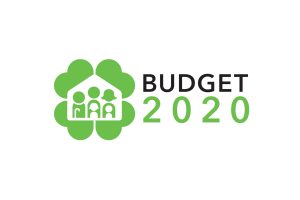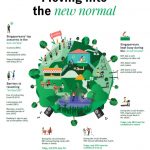The Government has unveiled new Covid-19 support measures to further support firms during the pandemic

On 17 August 2020, Deputy Prime Minister Mr Heng Swee Keat spoke on how the government would evolve and extend support for firms and workers. This is as a number of measures announced during four successive Budgets from February to May are due to end soon, such as the Jobs Support Scheme (JSS) of wage subsidies, foreign worker levy waivers, financial assistance for the self-employed, as well as rental relief schemes.
The government has dedicated nearly $100 billion over four budgets, amounting to almost 20% of Singapore’s GDP, to fight against the COVID-19 pandemic. The fallout from the pandemic has led to a further downgrade of the Ministry of Trade and Industry’s (MTI) GDP forecast to -5% to -7% for 2020, from the previous -4% to -7%. This follows a contraction of 13.2% y-o-y for 2Q 2020, as the country enters its worst recession since independence.
Key Highlights of the new Covid-19 Support Measures
To further support firms during the COVID-19 pandemic, the government unveiled another series of measures. This continued support will come to $8 billion, funded by reallocating monies from other areas, such as development expenditures that were delayed due to COVID-19. There are no plans for further drawdowns on past reserves.
1. Continue to support and protect jobs
The government will extend its JSS by up to seven months to March 2021. However, as the JSS cannot be sustained at current levels as it draws heavily on Singapore’s reserves and risks trapping workers in unviable businesses, the JSS will be adjusted based on the projected recovery of the different sectors.


With the JSS extension, most businesses will receive wage support for 17 months to help them retain as many workers as possible. He urged businesses to make full use of this additional support to retain and upskill their workers, and to transform their operations for the post-COVID-19 world.
The new Covid-19 support measures will see the Government launching a $1 billion Jobs Growth Incentive (JGI) to help firms to increase their headcount of local workers over the next six months. The JGI supports efforts to create new jobs for workers, with a special focus on mature workers.
Biomedical sciences, financial services and infocomm and technology (ICT) sectors continue to need more workers; the public healthcare and long-term care sectors are hiring; and some firms in the F&B and manufacturing sectors are growing and innovating.
For these firms, the Government will co-pay up to 25% of salaries of all new local hires for one year, subject to a cap. For those aged 40 and above, the co-payment to firms will be up to 50%.
2. Provide more support for hardest hit sectors
Further support for the aerospace, aviation and tourism sectors, which have been hit the hardest, will be provided to retain core capabilities and position them for an eventual recovery. These sectors are important to Singapore’s economy, with the Changi Air Hub and its adjacent industries contributing to more than 5% of Singapore’s GDP and employing over 190,000 people.
An additional $187 million will be allocated to the aviation sector via the Enhanced Aviation Support Package up to March 2021 to provide cost relief to airlines, cargo agents and airport tenants. The Government will also scale up the temporary redeployment programme by creating up to 4,000 new jobs, including permanent roles, in the healthcare sector alone.
Further, to boost local tourism, another $320 million will be set aside for tourism credits, called SingapoRediscovers vouchers, that Singaporeans can use. Singaporeans are encouraged to take the opportunity to explore Singapore’s local culture and heritage, nature, art, and architecture. The MTI will provide more details next month.
For a small number of businesses, such as those in the nightlife industry, which unfortunately will not be able to open soon, the Government will help them transition to other activities or ease their exit.
3. Transform economy to position for growth
Against a backdrop of configured global supply chains and an accelerated digital shift, new areas of growth such as healthcare, sustainability and artificial intelligence have also emerged. To continue to spur innovation and entrepreneurship, up to $150 million will be channelled towards enhancing the Startup SG Founder programme in phases, which includes raising the start-up capital grant and continuing to provide mentorship. The MTI will provide more details later this week.
CBRE Research Views on the New Covid-19 Support Measures
CBRE Research feels that these measures are timely and more equitable as they provide a forward-looking reassurance. Further, as recovery is uneven across sectors, a more sector-specific approach to provide varying degrees of targeted relief measures may be more appropriate than continuing with massive broad-based support. For example, support was scaled back more for sectors showing a strong rebound, such as retail or food and beverage. On the other hand, it was boosted for weaker sectors such as aerospace, aviation and tourism.
While the government is tapering off support, it is not entirely cutting it off as this might stall the economic growth momentum; some firms are only starting to get back on their feet and labour market conditions are expected to worsen. There are no extensions or additional measures targeted at occupancy costs.
With additional support to bolster employment, further cash incentives were allocated to allow Singaporeans to prop domestic demand especially for local tourism. This will not only support the hospitality and tourism sectors; it will symbiotically benefit the retail and F&B sectors eventually.
The continued commitment towards start-ups will prepare the economy for its revival with a strong focus of enhancing the progress for the 23 identified sectors’ Industry Transformation Maps.
Overall, this set of measures will help to set expectations, as well as prepare businesses and people to deal with a post-COVID-19 environment with more targeted support.






